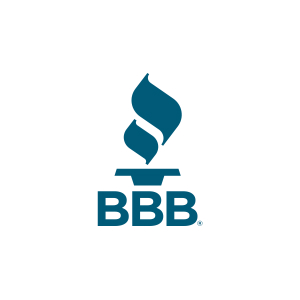
These scams typically start with a phone call saying you owe back taxes and the caller tries to pressure you into making payment immediately. Failure to comply often results in the scammer threatening you with arrest and fines. Scammers may also claim they are issuing tax refunds and need you to provide personal information to process your tax returns. However, if they get this information, they can use it for identity theft.
Sometimes scammers may follow up on their calls by sending an email or letter in the mail which fraudulently uses the CRA logo. This may also be their first point of contact with you. BBB is already hearing stories from the public about being contacted by scammers. In one instance, documents with CRA’s logo were sent via mail to an individual, requesting that they provide relevant tax information needed to process a refund. The package included a partially completed form with the correct name and address for the individual and required that they provide their Social Insurance Number (SIN) and date of birth. It also came with a self-addressed and stamped envelope to return the completed documents.
Phishing scams using CRA or other reputable agencies are not uncommon and continue to be a serious problem. In fact, income tax scams were number six on BBB’s list of Top 10 Scams in 2017. Based on the prevalence of the scam and the number of reports received, we anticipate it may still hold a spot on the Top 10 list for 2018. “Scammers attack areas of vulnerability, and anything involving money tends to fall in that category”, says Karla Davis, Manager for Community and Public Relations at BBB. Davis explained that, “taxes and money go hand in hand. Access to information that allows someone to assume your identity and control your tax account offers lucrative opportunities for scammers. Your name, address and SIN are crucial details that cybercriminals can monetize; that is, they can use it to access loans, apply for employment or even file tax returns in your name and collect your refund”. In most cases, people do not realize they are victims of identity theft until they receive a written notice from CRA informing them that more than one tax return was filed, or that they were paid by an employer they never worked for. The best way to avoid tax identity theft is to file your taxes as early as possible, before a scammer has the chance to use your information to file a fraudulent return.
There are three groups of people who may be primary targets for scammers: new immigrants, seniors and millennials. New immigrants are most vulnerable because they are least informed about how the Canadian government contacts and interacts with citizens. Seniors are also primary targets because they are least aware of new technological developments, and they may not be as informed about accepted communication and payment methods. Additionally, being in retirement may contribute to their lack of social awareness and may also trigger a greater sense of financial insecurity, which makes them more susceptible to threatening phone calls and other aggressive advances for money from scammers.
Although millennials are most informed, they also get caught in scams because of overconfidence, which makes them less likely to do their due diligence and thoroughly read through documents. For instance, while they may be able to quickly identify that text messages and phone calls from CRA are a scam, they may miss the signs of a scam in a lengthy email or a letter in the mail because they simply accept the document at face value and fail to read and examine it thoroughly. Davis explained that ‘because we live in a fast-paced world, the idea of instant transactions, receiving emails with links and just a few clicks to get things done fit right into a millenial’s comfort zone, making them vulnerable to the scam”.
BBB is sharing the following tax scam prevention tips:
• Carefully review all financial documents you receive in the mail, especially if they are asking you to share confidential information.
• Look out for unusual forms of payment like wire transfer, Interac e-transfer, bitcoin, prepaid debit card, gift cards from retailers like Amazon and iTunes or other non-traditional payment methods. These methods are largely untraceable and cannot be reversed.
• An email, text message or communication via instant messaging platforms like Whatsapp and Facebook Messenger requesting that you provide private information are a scam. If there is an issue with your tax file, CRA will first contact you by mail.
• CRA will only send payments to you by direct deposit or cheque.
• If you are being pressured to act quickly, or receive aggression and threats to send a police officer to arrest you for failure to comply, it is a scam. The CRA will always give you the chance to ask questions or appeal what you owe.
• Demands for money or credit card numbers over the phone or by email is likely a scam.
• Requests for information not required for tax purposes, like your passport, health card, or driver’s license are a scam.
Knowledge is the best way to be empowered and stay ahead of scammers. Educate your family members, friends and colleagues about how to identify and avoid scams. If you are a victim of a scam, we encourage you to report it. Visit bbb.org to use Scam Tracker or call 604-682-2711. You may also contact the Canadian Anti-Fraud Centre at 1-888-495-8501. If you believe your SIN has been stolen, contact Service Canada at 1-800-206-7218.
